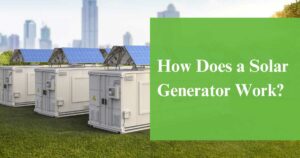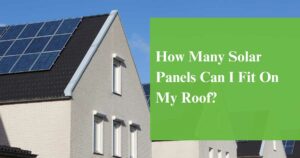Renogy 10-Watt 12-Volt Monocrystalline Solar Panel Review
Written by qualified solar engineer Aniket. Last updated:
Page Contents
- High efficiency monocrystalline cells
- Anti-reflective glass
- Bypass diode
- Pre-drilled mounting holes
Max. Power: 10W.
Max. power voltage: 17.5V
Max. power current: 0.57A
Dimensions: 16.9 x 7.3 x 1.0 In
Weight: 3.5lbs (1.59 kg)
Our Verdict
Without doing anything vastly different or new, Renogy offers a decent 10W panel that is light, handy and performs well enough to get small batteries or lamps to work. The dark frame brings a modern look, and the MC4 connectors and mounting holes make it easy to mount and connect.
By going for monocrystalline cells instead of polycrystalline, Renogy keeps the dimensions and weight relatively low. The cells are EL tested and perform well even in hot or low irradiance conditions. The cost, however, is a major drawback, although the panels come with all the quality components such as anti-reflective glass and a bypass diode. This Renogy 10-watt 12-volt monocrystalline solar panel review covers all the important aspects that help you decide on buying it.
Compatibility
The standard and universal MC4 connectors make this panel compatible with nearly all appliances or batteries. It is, however, important to keep the voltage in mind. The panel has a test condition operating voltage of 17.5V, which means all 12V devices can be connected to it. Lower-sized versions of Renogy’s battery packs can be charged using the 10W panel and are specified compatible.
Durability
Solar panels are slightly vulnerable to shocks because of the glass. This panel comes with a low-iron tempered glass. This improves the toughness of the glass and also makes it more transparent by eliminating the greenish tinge on plain glasses. The frame is made of aluminum, which makes it lightweight and corrosion-resistant. On the rear, the frame thickness and junction box size are decent for a 10W module, making a strong solar panel. The module and the connectors are water-resistant, which is an obvious requirement.
Easy Of Use
This solar panel has the standard MC4 connectors. Anyone well-versed with any of the regular panels will find it simple to use. The connectors have designated male and female ports which prevent imperfections to a large extent. The frame is slightly broader on the rear side, making it easy to accommodate fingers while lifting and carrying around.
Features
The most important feature about Renogy’s 10-watt panel is its monocrystalline cells. These pitch-black cells guarantee higher efficiency, reducing the dimensions of the panel for given output. It has an optional tilt mounting stand which helps mount the panel at a desired angle facing the sun. This improves power generation capacity. The makers could have done better in this aspect. At this price point, the panel should come with a carry-case with handle and corner-protectors on the frame, among other possible features.
Design
There is not much you can do to turn solar panels into handsome gadgets. The panel in this case looks like a black rectangle with a silver PV ribbon running around over the cells. The black frame does improve the looks over plain aluminum colored frames. The designers have gone with a 12×3 cell matrix instead of the more common 9×4, which increases the length and reduces the width of the panel. On the rear, there is a black plastic junction box that is easy to open for any repairs. The wires are less than two feet long, and should be sufficient for most purposes.
What We Like
The Renogy 10-Watt 12 Volt monocrystalline solar panel may not be a totally extraordinary panel, but it is a no-nonsense device capable of doing everything you can expect from a 10W panel. The monocrystalline cells and good quality assembly materials such as anti-reflective, high transparency glass aid in boosting efficiencies by maximum light absorption. Monocrystalline cell prices are down to less than half a dollar per watt.
Therefore, the cost should have been lower by at least 50%, but if that one aspect is ignored, this is a well-built solar panel.
Pros:
- Compact and light
- EL tested cells without hotspots
- Option of tilt-mount
Cons:
- High cost
Other Portable Solar Panels You May Like
We hope you liked this article. Please rate it or leave us a comment.
Average rating 5 / 5. Vote count: 2
No votes so far! Be the first to rate this post.









